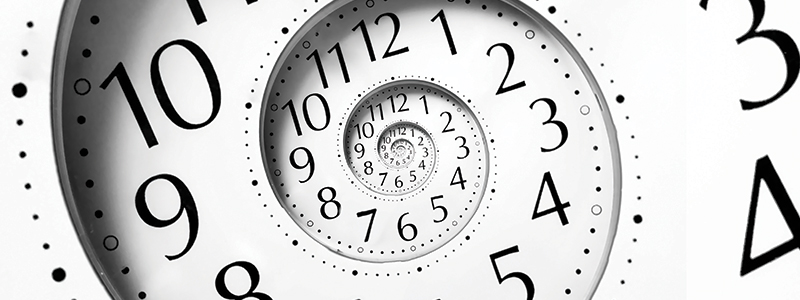
by Shaun G. Jamison
Do you feel like you do not have enough time for your personal and professional growth? Are you frustrated with time? Angry about waiting? Feel like everyone’s wasting your time? Is your response to anything new, “Who has time for that?” You are not alone. In this busy, stressed out, and overloaded world, even your stress has stress and it is especially true for lawyers.
While this article does aim to help with time management, the goal is even bigger than that. The goal is to help you improve your relationship with time so you can have less stress and actually be more effective.
A good place to start is thinking about how you would like your life to be. Would you like less anger, drama, and slow creeping tension, and fewer health problems? What saps your energy that you would like to change?
People make changes when they recognize their pain point or are motivated by a potential positive outcome. The next step is to figure out what is causing the pain or getting in the way of your goal.
Finding satisfaction or status can overwhelm a person. This is nothing new, but it is certainly prevalent in our society today. People brag about huge caseloads, lack of sleep, and impossible deadlines. As a professional, it is not unusual to work long hours, especially when in trial or concluding a large transaction. That is not the issue. The problem is working impossible hours week after week, year after year, without real breaks or vacations. But what can be done?
Change Your Mindset
When people ask if your practice is busy, don’t go for “I worked 100 hours last week.” Instead focus on other aspects: “We’re making a difference for our clients,” or “We’re meeting our goals; we’re serving the client well, thank you.” Focus on outcomes rather than inputs (like tons of hours).
Get Rid of Activities that are Unprofitable, Either Money-wise or Emotionally
Take stock of clients and case types. Are they actually worth it to the bottom line? Are they so disruptive or draining that they are taking away from more productive activities? Get rid of them. Look at activities you do in your law practice and consider whether you have to do them at all, whether you can delegate to someone else, or simply automate them. Yes, this also takes time, but it is a great investment toward a better life.
Time-wasting activities creep back into your life, so calendar some time once or twice a year to revisit this process. It is easy, especially if you are a solo practitioner, to convince yourself that you cannot let go of that unreasonable client or soul-draining case type. However, getting rid of timewasters will open up space in your practice for clients and cases that you can throw yourself into willingly.
Add Activities that Sustain You
Set goals to do activities you enjoy or help you relax. Relaxing could be as simple as five minutes with your office door closed and the lights off or as grand as a two-week ocean cruise.
When I’m especially stressed, I find breathing exercises helpful. Take a couple of minutes now and then to breathe. One method is to breathe in, expanding the belly slowly for four seconds and then exhaling slowly for four seconds. Maybe the first time you try a breathing exercise, you won’t feel the relaxation, but give it a chance. It can be a simple way to improve your life.
What sustains a person is different for every one. Personally, I know my workouts have helped me manage stress and are definitely worth my time. Here is the hard part: Fully embrace what you are doing. When you are working, your work deserves your focus; but so does “not working.” If it’s time with the kids or grandkids or a vacation or lunch with a friend, set work aside. It will be there when you are done.
Avoid Getting Angry or Frustrated about Interruptions
Like so many people these days, you may be working from home, where there are many extra interruptions, particularly from family members or even the door-to-door salesperson. I teach online and one of the strategies I suggest to students is to set up a time where someone else is taking care of the household so they can work uninterrupted. I encourage them to set boundaries so other people understand they have a set time to work on their homework. Some of you are laughing at me because you’ve tried that and it didn’t work.
If the interruption is from persons you would like to see (just not at that moment), shift to focusing on them for a short time until you can get them on their way. Even though it was unplanned, that focus will buy you some time and, certainly, an angry response doesn’t help relationships and is also a form of attention; so oddly, getting mad still acts as reinforcement for interruptions. If the interruption is from someone I didn’t want to hear from, like a sales guy, I’m in the “no thanks, take-me-off-your-list” camp. No need to get upset, just get rid of them quickly. I had to put up a “No Soliciting” sign for the first time in years, but what a great investment.
Learn to Deal with Delays
Finally, delays can be frustrating, to be sure. Here are some ideas: First and foremost, plan them out of your life as much as possible. You are much less likely to be late for a meeting or court appearance if you leave your office with enough time to make it to your destination plus a little cushion time. No need to drive aggressively through traffic or seethe about slow drivers when you know you are going to make it on time anyway. Likewise using project management techniques to avoid meeting deadlines at the last minute will help any delays be less significant and less stressful.
But, despite our best efforts, we will have frustrating delays. What can we do? If you truly have no control over a delay, accept that. Take steps to lessen the damage like calling people to say you will be late. You can repurpose the time. Sometimes I’ll do a little stretching or breathing exercises if I’m in a long line at the grocery store. (Just don’t breathe out so hard everyone thinks you’re exasperated with them.) You could use the delay to check in with the office or check your email. Or, you could just take a break.
If you are stuck in a bad relationship with time, there is hope. You can make changes and make your life better. You do not have to accept constant and overwhelming stress. Being more aware of the choices we make, how we react to our lives, and how we plan and design our lives greatly impacts the quality of the lives we lead.
 Shaun G. Jamison
Shaun G. Jamison
sjamison@purdueglobal.edu
Shaun G. Jamison is associate dean and professor of law with Concord Law School at Purdue University Global. Dr. Jamison’s interests lie at the intersection of the practice of law, technology, and privacy.